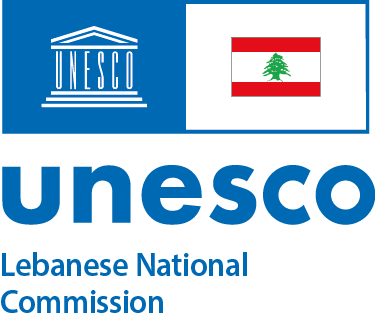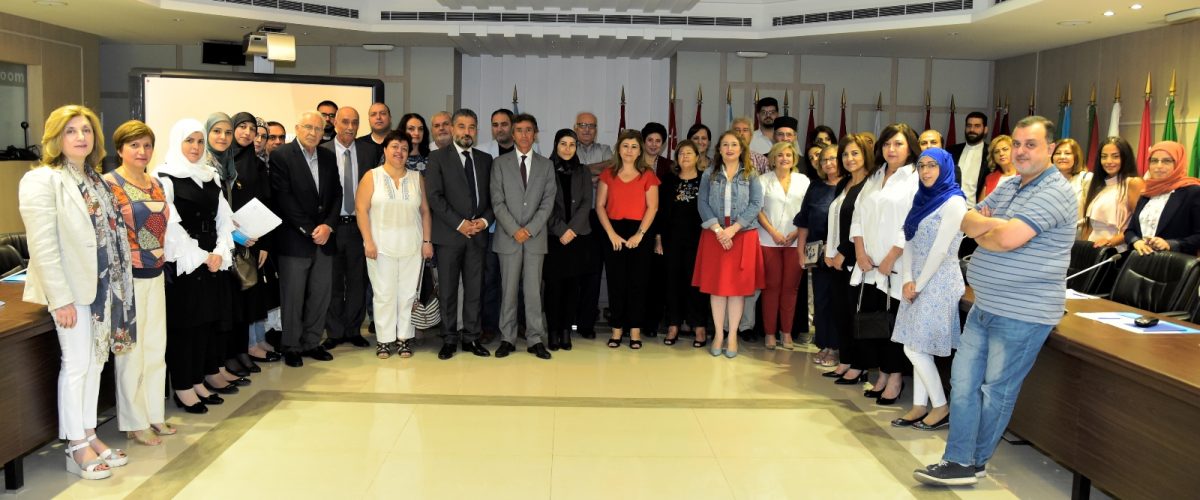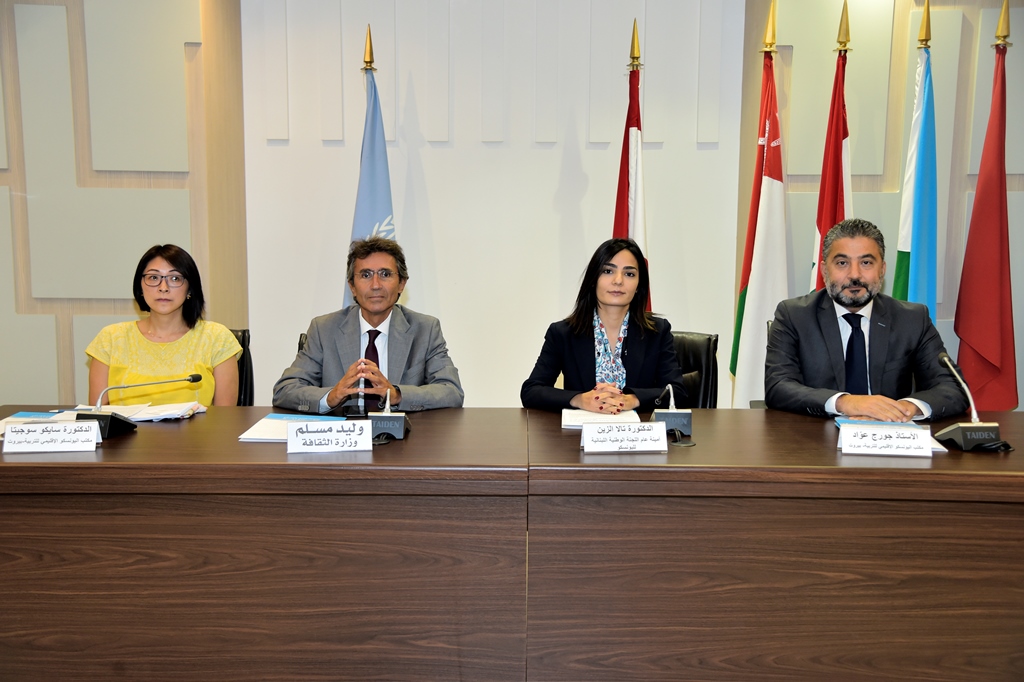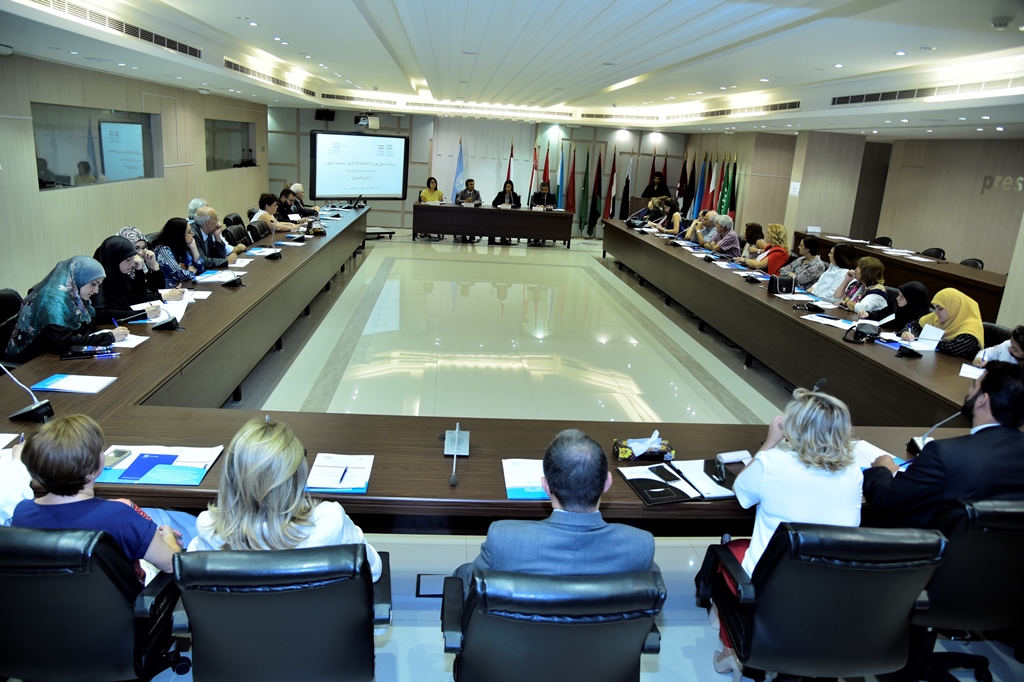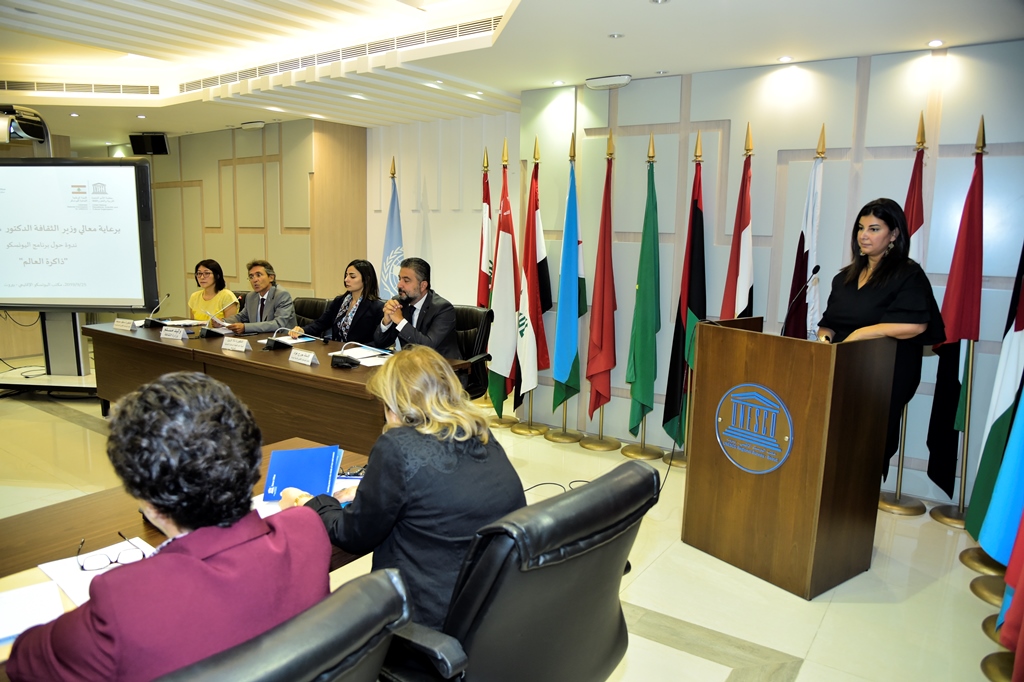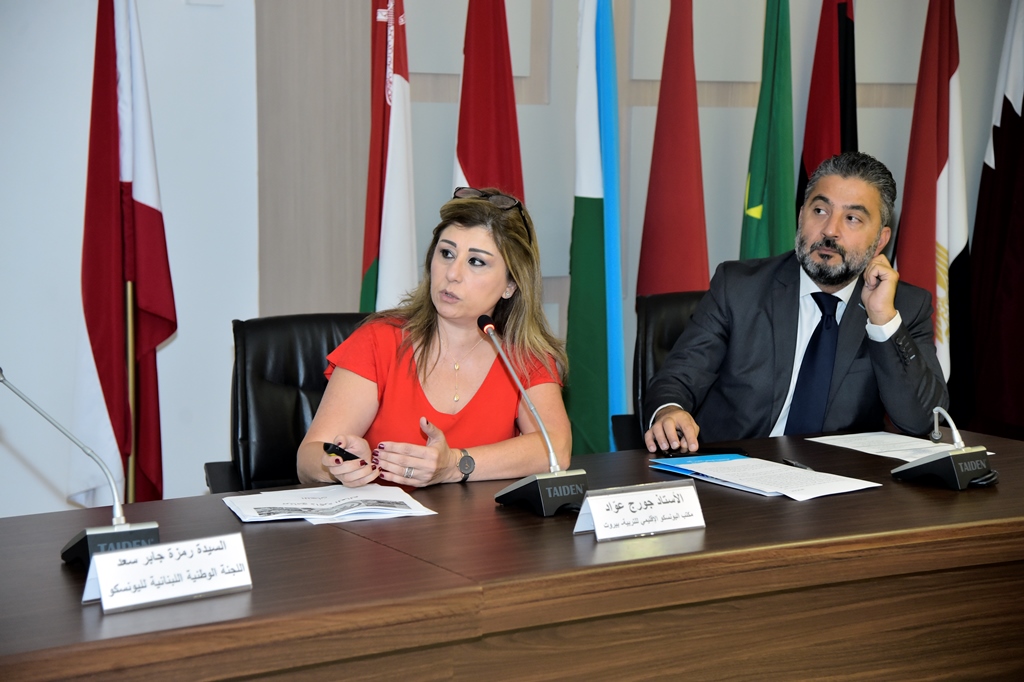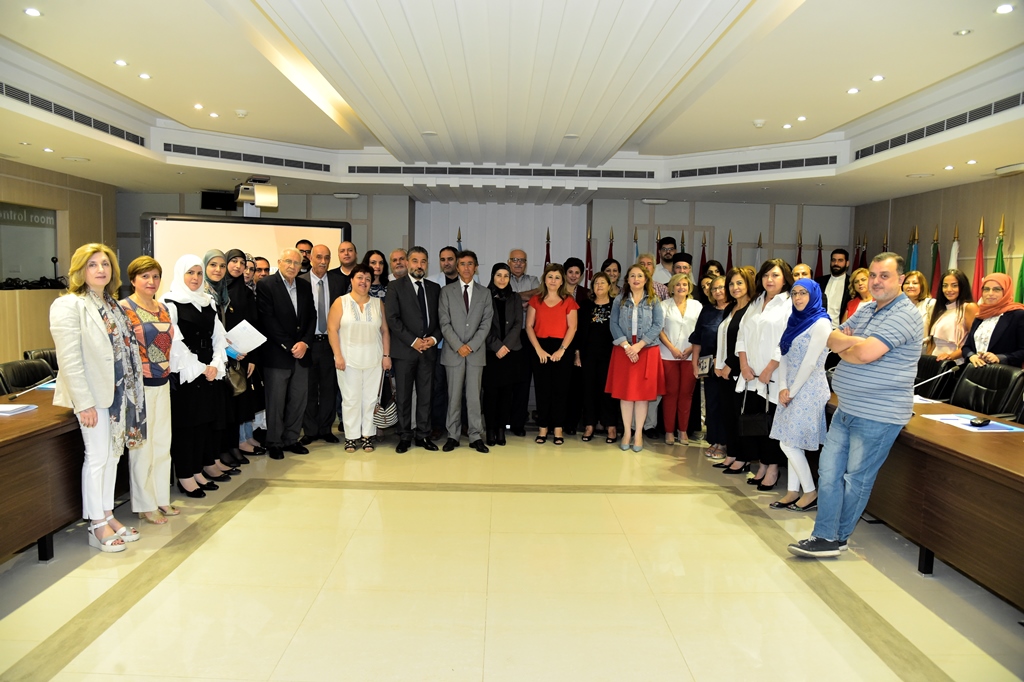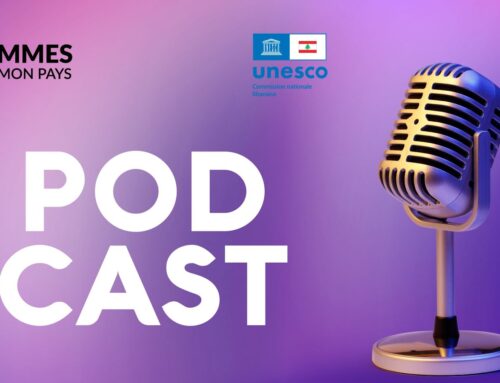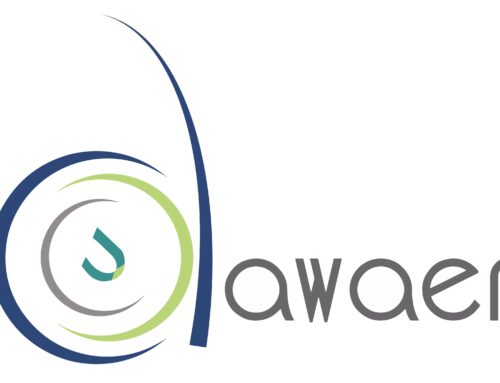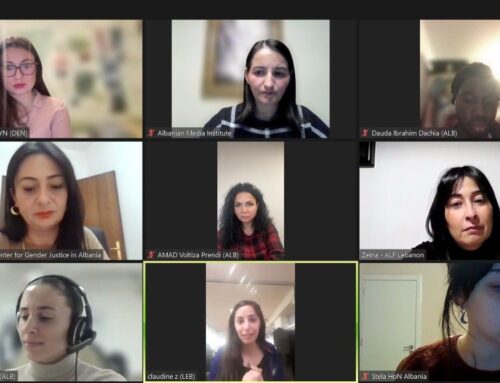The Lebanese National Commission, in partnership with UNESCO Beirut Office organized on 25 September 2019 a one-day meeting with key stakeholders (librarians, documentary heritage experts, historians, museums curators, archivers) which aimed to introduce participants to UNESCO’s MoW Programme, explore opportunities and challenges for the safeguarding of documentary heritage in Lebanon, and discuss future steps to establish a National Memory of the World Committee who would identify documentary heritage in Lebanon and submit it to the Memory of the World Register.
The opening session was attended by representative of the Minister of Culture, Dr. Walid Msallem, representative of UNESCO Beirut Director, Dr. Seiko Sugita, the Secretary General of the Lebanese National Commission for UNESCO, Dr. Tala Zein, UNESCO Beirut’s Programme Specialist for Communication and Information, Mr. George Awad, the Deputy Secretary General of the Lebanese National Commission Ms. Ramza Jaber Saad, and Dr. Mona Reslan, member of the Lebanese National Commission.
In her speech, Dr. Tala Zein asserted that “there are several factors that threaten the memory of the world, whether resulting from human action; such as wars and insecurity, looting, or illicit trafficking; or those that result natural disasters. The MoW programme has succeeded in preserving many types of documentary heritage; the number of works included in the Register so far has reached 527 including old manuscripts, national archives, audio-visual discs, movies and photographs”. She added “the Lebanese National Commission for UNESCO, entrusted with the implementation of UNESCO programmes, established in 2003 a National Memory of the World Committee, which included a number of experts in the field of heritage preservation. In 2005, the Committee managed to inscribe in the Register the Phoenician alphabet and manuscripts of Nahr el Kalb. I admit, however, that the committee is now inactive and inexistent due to a lack in financial and human resources”.
As for Dr. Seiko Sugita, speaking on behalf of Director Dr. Hamed al Hamami, she said “UNESCO’s Memory of the World (MoW) Programme was established in 1992 to ensure that the world’s documentary heritage is preserved, protected and permanently accessible; with due regard for cultural mores and practicalities. Since that time, the MoW Programme has been promoting capacity building, fostering international cooperation, identifying best practices, implementing projects, developing resources and leading standard-setting activities in this field”. She added “our event today aims to provide you with the knowledge shared at the global and regional level which help you to undertaking actions at the national level”.
As to Dr. Msallem, he reiterated in his speech the Ministry of Culture’s unwavering support for all initiatives that aim at preserving and safeguarding cultural heritage. He praised the work of UNESCO in this regard and stated the Ministry’s full backing of the implementation of the MoW programme in Lebanon.
Ms. Ramza Jaber Saad and Mr. George Awad then gave a brief overview of the MoW Programme, stating the importance of implementing such programme in Lebanon, a country rich in cultural heritage. Awad introduced the participants to the programme’s objectives and to UNESCO’s Recommendation concerning the Preservation of, Access to, Documentary Heritage in the Digital Era (2015).
Throughout the day, participants and experts shared their experience in the field of the preservation of documentary heritage in Lebanon, discussed challenges, and explored ways to move forward to implement the MoW Programme in Lebanon.
